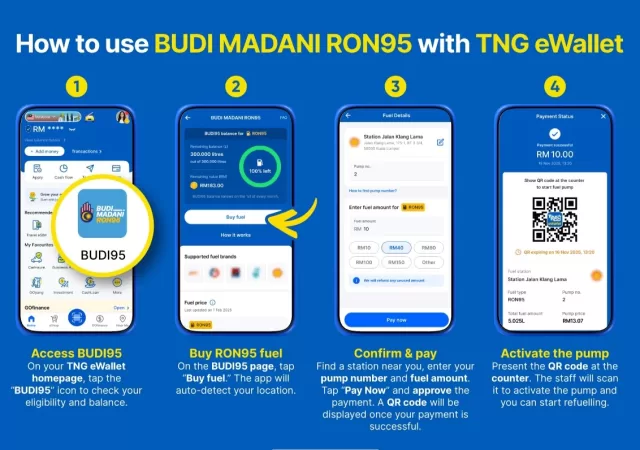This article is contributed by Dhawal Shah, Regional Managing Director and Co-founder of 2Stallions
The digital marketing industry in Malaysia continues to soar, with it raking in RM66.22 billion in the first half of 2024 alone, handily surpassing the full-year digital investment for 2023 of RM46.2 billion. This massive growth can be attributed to a wide range of factors; however, we must acknowledge that the widespread adoption of artificial intelligence (AI) in not only this sector, but across all industries, has definitely been a major contributor. As a matter of fact, AI has boosted every single industry’s revenue by 10% to 35% globally.

With this in mind, let’s take a deep dive into the 6 ways AI has transformed digital marketing in 2024, as well as why all digital marketers should adopt it fully before it’s too late.
Content, Products, And Brands: Specifically For You
AI has completely supercharged companies’ abilities to deliver hyper-personalised content to users. With the power to analyse data such as browsing habits, past purchases, and even real-time interactions to tailor content to individual preferences, marketers can create dynamic content that changes based on a user’s profile or real-time behaviour, enhancing engagement.
In addition, AI-powered recommendation engines — think the suggestions you get on Amazon or Netflix — have become the gold standard. These systems are perfect examples for marketers to be inspired by, in terms of how tracking customer preferences can be used to suggest products and services that match their interests.

Getting Your Brand To The Top AI has radically transformed search engine optimisation (SEO). With AI tools like Google’s BERT and MUM models, we can now get a clearer sense of what people are searching for and tailor content to match their intent more accurately. AI also powers natural language processing (NLP) tools and generation models like OpenAI’s GPT, making it possible to create more human and authentic content—at a much faster pace.
Automated content creation is another leap forward, with AI tools generating blog posts, ad copy, and even social media content. AI doesn’t just speed up the content creation process for this area though; it’s smart enough to analyse real-time data and tweak messaging for better engagement. Whether it’s blog posts, social media updates, or ad copy, AI helps make sure your content resonates with the right audience.
Your Campaigns Can Run Themselves
AI has completely transformed the way we manage campaigns, from increased efficiency to improved idea generation and more . Imagine having tools that not only target the right audience but also optimise everything in real-time—from bidding strategies to audience segmentation and
performance tracking. With AI, it’s now possible to automate many aspects of campaign management, ensuring your ads always perform at their best.
And it doesn’t stop there. AI is also changing how programmatic advertising works, automating the entire ad-buying process across multiple platforms through specially designed programmatic algorithms. This ensures that your ads are reaching the right people at the right moment, helping you get the most out of your marketing budget and further maximising your return-on-investment (ROI).
Talk Chatbot To Me
The rise of AI-powered chatbots in customer support has been one of the most interesting developments in the marketing sector. As of 2024, chatbots have become smarter (literally), and are capable of handling more complex queries through natural language understanding (NLU), the better to deliver faster, more accurate responses. This trend has led to improved user experiences, with bots providing 24/7 support, personalising responses based on customer history, and escalating issues to human agents only when necessary, such as in the case of Google’s Customer Engagement Suite.

In industries like retail and e-commerce, these AI chatbots are a game-changer. They can cut response times and improve customer satisfaction, all while gathering data that helps businesses refine their future marketing strategies.
Future-Powered Targets
AI’s ability to sift through massive amounts of data has brought predictive analytics to a whole new level. By 2024, marketers can anticipate trends, customer behaviour, and buying patterns with stunning accuracy. These predictive models allow businesses to hit the sweet spot when customers are most likely to engage or purchase, making marketing even more effective.
From predicting future purchases to knowing when a customer might unsubscribe, these insights can go a long way towards helping companies deliver personalised, timely offers that resonate with their audience, ultimately boosting marketing efficiency.
Visual and Voice Searches
Voice search is booming, and AI is at the heart of this shift. By 2024, over half of all internet searches are expected to be voice-based, thanks to AI-driven tools like Amazon Alexa, Google Assistant, and Siri. With conversational queries on the rise, businesses need to optimise their content to ensure they actively feature in voice search results.
AI is also revolutionising visual search. Tools like Google Lens now enable users to find products or information just by snapping a photo. This trend is pushing brands to rethink how they optimise their content, ensuring they’re ready for both voice and visual searches as they become even more integral to how people discover information.






